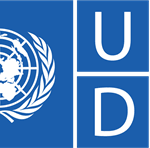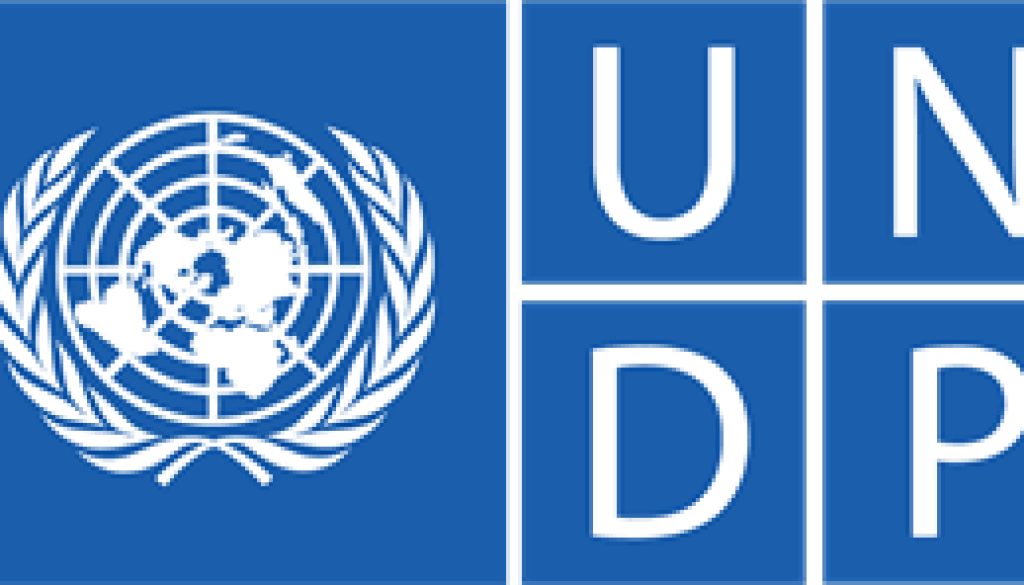Climate Finance and Sustainable Development Associate NPSA6 Vacancy-Job Ref: BJCLUNDP/0306/2025814

UNDP
Climate Finance and Sustainable Development Associate NPSA6 Vacancy-Job Ref: BJCLUNDP/0306/2025814
Santiago (Chile)
Job Description
1. Background
Diversity, Equity and Inclusion are core principles at UNDP: we value diversity as an expression of the multiplicity of nations and cultures where we operate, we foster inclusion as a way of ensuring all personnel are empowered to contribute to our mission, and we ensure equity and fairness in all our actions. Taking a ‘leave no one behind’ approach to our diversity efforts means increasing representation of underserved populations. People who identify as belonging to marginalized or excluded populations are strongly encouraged to apply. Learn more about working at UNDP including our values and inspiring stories.
UNDP does not tolerate sexual exploitation and abuse, any kind of harassment, including sexual harassment, and discrimination. All selected candidates will, therefore, undergo rigorous reference and background checks.
2. Office/Unit/Project Description
Chile faces a challenge stemming from the impacts of climate change. Despite accounting for only 0.24% of global greenhouse gas (GHG) emissions, the country is highly vulnerable, and these effects are manifested in storm surges, a massive drought lasting more than 10 years, and episodes of intense rainfall and landslides due to the alteration of normal weather conditions.
In April 2020, Chile updated its Nationally Determined Contribution (NDC) to the United Nations Framework Convention on Climate Change (UNFCCC), establishing mitigation and adaptation commitments and means of implementation by 2030. Subsequently, in 2021, it presented the Long-Term Climate Strategy (LTCS), an instrument that outlines cross-cutting guidelines with a 30-year horizon to achieve carbon neutrality, reduce vulnerabilities, and increase climate resilience. These efforts were consolidated in June 2022 with the enactment of the Climate Change Framework Law (LMCC), which sets the goal of achieving carbon neutrality and climate resilience by 2050 at the latest.
The Ministry of Finance, as the climate finance coordinator for the UNFCCC, launched the Climate Change Finance Strategy (CCFS) in 2019 to facilitate the implementation of the country’s climate objectives. In 2022, the CCFS was updated to reflect the progress made, and since 2023, the Ministry of Finance has been working to adapt it to the requirements of the LMCC, aligning it with instruments such as the ECLP and international experiences. Furthermore, the Ministry has led a public consultation process to validate this update and has established an inter-ministerial committee to develop a Finance Strategy for Environmentally Sustainable Development (FS-MAS), expanding its scope to include biodiversity, the circular economy, and a just socio-ecological transition. Additionally, the Ministry of Finance is conducting various costing and measurement exercises for expenditure and investment in climate change and other environmental issues, which will support decision-making in environmental policy from a financial perspective.
In this context, the Ministry of Finance, in collaboration with UNDP, and within the framework of Climate Promise Technical Assistance, requires the hiring of two professionals to support tasks related to technical assistance related to the EFCC, the EF-MAS, and the expenditure measurement and costing exercises for environmental commitments, in accordance with the terms defined in these Terms of Reference.
In this context, and within the framework of the aforementioned initiative, UNDP requires a pair of professionals to serve as Associates in Climate Finance and Sustainable Development , who, under the supervision of the Project Coordinator and in direct relation with the Environment and Sustainable Development Area of UNDP in Chile, will support the implementation process of the Climate Change Financial Strategy, the EF-MAS and the exercises of measurement and costing of environmental commitments in accordance with the scope indicated in these Terms of Reference.
3. Scope of work
The Climate Finance and Sustainable Development Associate will provide technical and operational support for the implementation of the Climate Change Finance Strategy (EFCC), the Environmentally Sustainable Development Finance Strategy (EF-MAS), as well as costing and expenditure estimation exercises in climate change and other environmental areas, in close coordination with the Ministry of Finance and the Ministry of Environment.
Its main functions include:
Technical and coordination support for the implementation of climate and sustainable financing instruments
Support the planning, information gathering, and coordination of technical meetings related to the implementation of the EFCC, the planning of the EF-MAS, and environmental expenditure estimation exercises.
Provide ongoing technical assistance to teams from the Ministry of Finance, the Ministry of the Environment, consultants, and other relevant stakeholders, ensuring the timely and effective execution of planned activities.
Systematize and consolidate key technical information for the development of reports, strategic documents, and knowledge management products related to climate finance.
Develop studies and analyses that support the Ministry of Finance’s decision-making on climate and sustainable financing.
Participate in the technical team that will implement climate change descriptors at the subnational level, collaborating in the development and review of methodological guides and training materials, and participating in coordination meetings with relevant institutions.
Monitoring, follow-up and support for inter-ministerial governance
Implement the Ministry of Finance’s EFCC Monitoring and Follow-up System, supporting the collection of information from key stakeholders on the proposed measures, developing follow-up indicators, and ensuring the transfer of capabilities to the Ministry of Finance for their continuity.
Prepare the EFCC’s progress report, complying with Article 35 of the Framework Law on Climate Change. Develop the proposed structure and content of the report, gather the necessary information, and draft the final report for validation and reporting to the Ministry of Finance.
Collaborate in the organization, monitoring, and systematization of the agreements and products derived from the Interministerial Committee for the development of the EF-MAS, including presentations, progress reports, and technical documentation.
Monitor the EF-MAS Roadmap developed by the Ministry of Finance, providing support in the systematization of results that meet the Roadmap’s milestones and updating its status by the end of 2025.
Collaborate in the final adjustment and launch of the publishable EF-MAS Roadmap document, addressing comments and observations from the Ministry of Finance, the Ministry of the Environment, and UNDP.
Operational management and institutional coordination
Actively participate in periodic coordination and planning meetings between UNDP and the Ministry of Finance, collaborating in the review of progress and operational adjustments to technical assistance activities.
Support the execution of activities defined by the Project Coordinator in conjunction with the Ministry of Finance within the framework of Technical Assistance 2025, ensuring their alignment with the project objectives.
Contribute to the development of intermediate products, such as technical notes, presentations, methodological sheets, or other inputs that strengthen the implementation of the EFCC, the EF-MAS, and public and private climate expenditure measurement exercises.
Serve as an active counterpart to the consulting teams that develop costing activities, supporting and ensuring the coordination and delivery of information that allows for the achievement of the established objectives.
Support, manage, and actively participate in the development of communication elements to ensure the timely dissemination of the project’s impactful products and results.
Other functions
The incumbent may perform other functions within his/her professional profile that are considered necessary for the proper functioning of the project.
4. Institutional Agreement
The contracted individual will work under the direct supervision of the Project Coordinator and in coordination with the UNDP Environment and Sustainable Development Program Area in Chile. Their duties will be carried out remotely; however, they may be required to visit UNDP offices or other locations relevant to the implementation of project activities.
This position requires the hiring of two individuals to perform the functions established in these Terms of Reference.
5. Competencies
Essential Competencies
Achieving Results – LEVEL 1 : Plans and monitors work, paying attention to detail, produces quality work on time.
Thinking Innovatively – LEVEL 1 : Open to new ideas, knows the risks, solves problems pragmatically, makes improvements.
Continuous Learning – LEVEL 1 : Open-minded and curious, shares knowledge, learns from mistakes, asks for feedback.
Adapt with Agility – LEVEL 1 : Adapts to changes, handles uncertainty/ambiguity constructively, is flexible.
Act with Determination LEVEL 1 : Demonstrates control and motivation, able to face adversity calmly, confidently.
Participate and Associate – LEVEL 1 : Demonstrates compassion/understanding toward others, forms positive relationships.
Facilitating Diversity and Inclusion – LEVEL 1 : Appreciates/respects differences, is aware of biases, confronts discrimination.
Functional and Technical Competencies
Business Management – Project Management
Ability to plan, organize, prioritize, and control resources, procedures, and protocols to achieve specific goals.
Business Management – Monitoring and Evaluation
Ability to provide regular feedback to managers, key stakeholders, and interested parties on the consistency or discrepancies between planned and actual activities, and between planned performance and results. Ability to make independent judgments on the management and results of strategies, programs, and activities based on established criteria (benchmarks), taking into account current and future client needs and concerns. Knowledge and understanding of monitoring and evaluation frameworks, concepts, methodologies, systems, processes, and tools. Ability to make independent judgments based on established criteria and benchmarks. Ability to anticipate client needs and concerns.
Business Management – Customer Satisfaction/Management
Ability to respond promptly and appropriately with a sense of urgency, providing consistent solutions, timely execution, quality results, and/or solutions that meet and understand the real needs of the client/user/beneficiary. Provide input for the development of the customer service strategy. Look for ways to add value beyond immediate customer requests. Ability to anticipate upcoming customer needs and concerns.
Network and alliance management – Relationship management
Ability to engage a wide range of public and private stakeholders, building, maintaining, and/or strengthening working relationships, trust, and mutual understanding.
Finance – Financial Reporting and Analysis
Understands changes in regulatory, legal, and ethical frameworks, and in standards for financial reporting in the public sector. Ability to extract and evaluate financial data, derive relevant findings, and present them in a meaningful and coherent manner to facilitate effective decision-making and performance monitoring. Understands the benefits of integrated reporting, including non-financial resources such as human, social, and intellectual capital, and environmental and governance performance.
Finance – Expertise in development financing
Ability to develop and work with innovative financial mechanisms and instruments, such as social/development impact bonds, guarantees, climate finance, etc.
6. Minimum qualifications of an NPSA
Minimum academic education required
Complete secondary education is required.
A university professional degree (Bachelor’s degree) in Economics, Engineering, Public Administration or related fields will be given due consideration, but is not a requirement.
It will be considered an advantage to have a professional degree in the mentioned areas
Minimum years of relevant work experience
Minimum 6 years (with Secondary Education) or 3 years (with Bachelor’s Degree) of relevant experience.
Relevant experience shall be understood as the set of work experience that includes:Experience in managing and implementing public policies on environmental matters and climate change, including participation in national programs and sectoral strategies from the public sector and/or through specialized consulting.
Experience in the development, analysis, and systematization of technical and strategic instruments related to climate change, such as financial strategies, monitoring and reporting mechanisms, sectoral plans, and institutional reports.
Required skills and competencies
Advanced level of Office (Excel, Word and PowerPoint).
Proficiency in remote work tools such as Microsoft Teams or Zoom, cloud storage, and collaborative work tools.
Desirable skills and competencies
A postgraduate degree in the environment, climate change, or a related field is desirable.
It will be considered an advantage, in the case of graduates or professional title holders, to have at least 5 years of relevant work experience and 10 years in the case of lesser academic training.
Direct work experience with the Ministry of the Environment and/or the Ministry of Finance, through technical consulting on projects related to climate change, climate public spending measurement, green taxonomy, and environmental and financial management tools, among others, is highly desirable.
Solid knowledge (studies, training, presentations) and/or significant experience in the Climate Change Finance Strategy (CCFS), Nationally Determined Contributions (NDCs), and other strategic climate planning and financing instruments.
Experience in public consultation processes and inter-institutional validation of climate instruments, including coordination and participation in bilateral meetings with key public sector stakeholders and the systematization of technical input for improving national climate change strategies.
Knowledge of environmental institutions, regulations, public environmental policies, and public management tools and instruments in the field.
Required languages (at work level)
Fluency in the Spanish language is required.
Intermediate knowledge and handling of the English language is desirable.
Professional certificates
Applicants will be required to provide certificates or other similar documents to prove their work experience in using the indicated tools.
7. Travel
Official national and/or international travel is planned for this position as part of outreach, training, and experience-sharing activities that contribute to expanding the project’s results and scope.
8. The following documents must be required from applicants
Personal CV (supplement) and P11 (mandatory; completed with online application), indicating previous positions and their responsibilities, duration (month-year), requirements, as well as the candidate’s contact details (email and phone number), and at least three job references from previous supervisors. References may also include colleagues.
A cover letter (maximum one page) stating why the person is considered suitable for the position.
Managers may request any other relevant material from your experience, such as reports, presentations, publications, campaigns, or other materials.
Considerations in your application :
Complete the online form; it is required.
Please also attach a CV in free format as a complement.
Include a cover letter (maximum one page) stating why you consider yourself suitable for the position.
Identify at least three job references from previous supervisors. References may also include colleagues.
Because this is a national position, foreigners must meet the conditions necessary to work in the country (residency, permit) at the time of applying.
Disclaimer
Important applicant information
All posts in the NPSA categories are subject to local recruitment.
Equal opportunity
As an equal opportunity employer, UNDP values diversity as an expression of the multiplicity of nations and cultures where we operate and, as such, we encourage qualified applicants from all backgrounds to apply for roles in the organization. Our employment decisions are based on merit and suitability for the role, without discrimination.
UNDP is also committed to creating an inclusive workplace where all personnel are empowered to contribute to our mission, are valued, can thrive, and benefit from career opportunities that are open to all.
Sexual harassment, exploitation, and abuse of authority
UNDP does not tolerate harassment, sexual harassment, exploitation, discrimination and abuse of authority. All selected candidates, therefore, undergo relevant checks and are expected to adhere to the respective standards and principles.
Please click on the button below to Apply.

